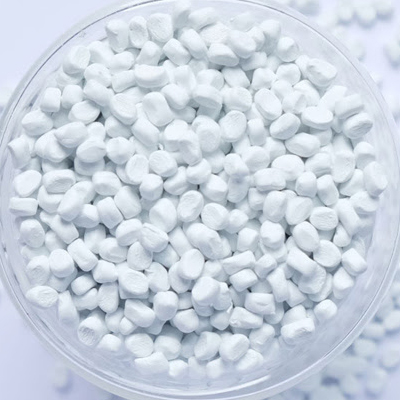Filler Masterbatches

Filler Masterbatches
Filler masterbatches are additive concentrates that are used in the plastic industry to incorporate fillers or reinforcing materials into plastic resins during the manufacturing process. These masterbatches play a crucial role in modifying the properties of plastic products and are widely used in various industries. Here are key aspects related to filler masterbatches
Composition
- Filler Materials
Common fillers include calcium carbonate, talc, barium sulfate, and other mineral or inorganic materials. These fillers are added to the masterbatch to improve certain properties of the plastic
- Compounding
The process involves compounding the filler material with a carrier resin, usually a polymer like polyethylene (PE) or polypropylene (PP).
- Pelletization
The compounded mixture is then pelletized into small, uniform pellets, forming the filler masterbatch
Manufacturing Process
Types of Filler Masterbatches
- Calcium Carbonate Filler Masterbatch
Commonly used for its cost-effectiveness, it provides benefits such as increased stiffness, reduced cost, and improved dimensional stability.
- Talc Filler Masterbatch
Talc is added to enhance stiffness, heat resistance, and impact strength.
- Barium Sulfate Filler Masterbatch
Used to increase density and improve certain physical properties in applications where high specific gravity is required.
Benefits
- Cost Reduction
By incorporating fillers, manufacturers can reduce the amount of expensive polymer resin in their products, leading to cost savings.
- Improved Properties
Depending on the type of filler used, properties such as stiffness, impact resistance, heat resistance, and dimensional stability can be enhanced.
- Density Adjustment
Fillers like barium sulfate can be used to increase the density of plastic products
Applications
- Packaging
Filler masterbatches find applications in the production of plastic films, bags, and containers.
- Automotive Industry
Used in various automotive components to improve mechanical properties.
- Construction
Commonly used in pipes, fittings, and construction materials.
- Consumer Goods
Filler masterbatches are used in the production of household items, toys, and various plastic products.
- Electronics
Components in the electronics industry may incorporate filler masterbatches for specific performance requirements
Considerations
- Compatibility
The choice of filler and carrier resin must be compatible with the base polymer to ensure proper dispersion and performance.
- Processing Conditions
Manufacturers need to consider the processing conditions, as excessive heat or shear can impact the dispersion of fillers
The specific properties and benefits of filler masterbatches can vary depending on the type of filler used and the application requirements. Manufacturers often customize formulations to meet the specific needs of their products.


